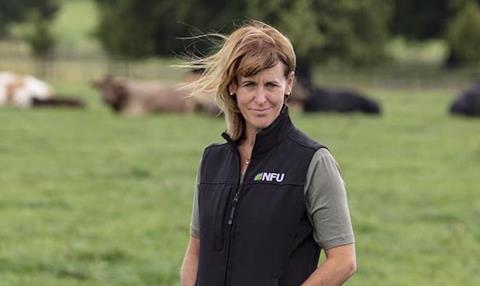The Government has announced that horticulture businesses will have access to the Industrial Energy Transformation Fund (IETF) to help cut their energy bills, with the National Farmers' Union (NFU) stating it is a "major win" as British growers feel the pressure from "soaring" energy costs.

The need for greater energy security for the horticulture sector was a key theme during Downing Street's 2023 Farm to Fork summit and Defra’s announcement follows continued NFU lobbying.
However, the NFU expressed its disappointment that poultry production, another "energy intensive" sector, had not been included.
NFU president Minette Batters said: “The horticulture sector invests heavily in renewables and energy efficient systems, but sharply rising input costs over the past 18 months, particularly for energy, have put many businesses on a knife edge. We have repeatedly made the case that this is threatening the viability of many crops, including peppers, cucumbers, tomatoes, and those with long term storage such as apples and potatoes.
“One of the key outcomes from the Farm to Fork Summit at Downing Street was the need for greater energy security, so we are very pleased that Government has responded to our calls to recognise energy intensive horticultural production within future energy price support measures. As we have stated many times, it is critical that all high energy crops are recognised within this announcement, including protected cropping and those with long term storage.
“We are seeking urgent clarification on the eligibility for horticulture businesses and the process by which they can register for the Industrial Energy Transformation Fund (IETF) to help mitigate against high energy costs and provide confidence to grow and invest in future production.
“The NFU remains extremely disappointed over the lack of support for poultry production – another sector that is energy intensive where ongoing, soaring production costs are putting producers under immense pressure. We call on Government to do everything it can so that the poultry sector is able to continue producing quality, affordable eggs and poultry meat which we know is valued hugely by the public.”
This story was originally published on a previous version of the Meat Management website and so there may be some missing images and formatting issues.















